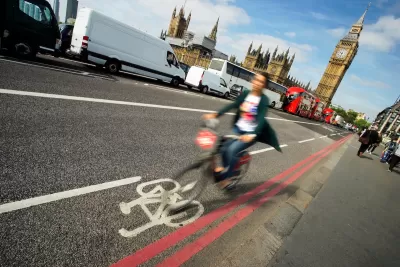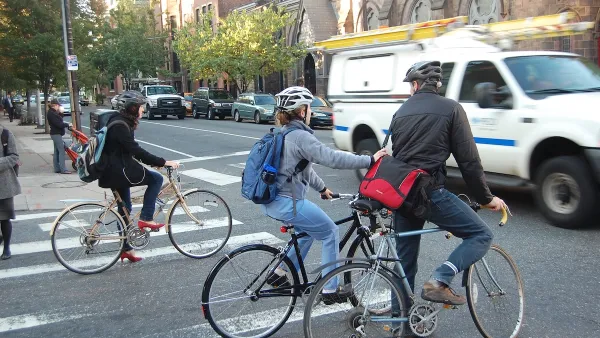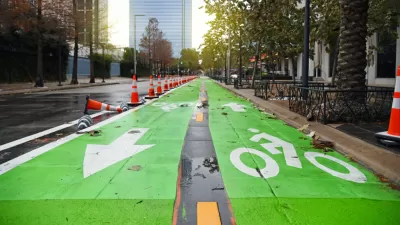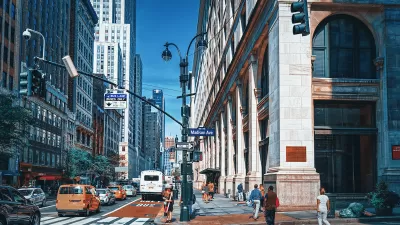Bike infrastructure tends to make vehicle travel faster, improve road safety, and bring more revenue to local businesses.

In an article for CBC, Nicole Mortillaro highlights research from cities around the world that shows that, despite popular misconceptions, bike lanes do not increase traffic congestion.
The article is in part a response to a contentious proposed Ontario, Canada law that would “would require municipalities to get provincial approval to install any bike lanes that would remove a lane of vehicle traffic.”
According to studies, dedicated bike lanes increase the number of people biking and reduce the number of cars on the street. “Bike Share Toronto statistics show that ridership on its network of shared bikes has increased dramatically since 2015, when 665,000 bike trips were made annually. In 2023, that shot up to 5.7 million trips.”
In New York City, the average time it takes cars to travel on a major thoroughfare decreased from 4.5 minutes to 3 minutes after bike lanes were installed. “Other case studies found either no impacts on traffic, or minimal delays — anywhere from a few seconds to just over a minute.”
The article highlights other studies from Canada and beyond, noting that bike lanes are also shown to increase safety for pedestrians by decreasing traffic speeds. And in many cases, they also bring additional revenue to local businesses.
FULL STORY: Do bike lanes really cause more traffic congestion? Here's what the research says

Planetizen Federal Action Tracker
A weekly monitor of how Trump’s orders and actions are impacting planners and planning in America.

Congressman Proposes Bill to Rename DC Metro “Trump Train”
The Make Autorail Great Again Act would withhold federal funding to the system until the Washington Metropolitan Area Transit Authority (WMATA), rebrands as the Washington Metropolitan Authority for Greater Access (WMAGA).

The Simple Legislative Tool Transforming Vacant Downtowns
In California, Michigan and Georgia, an easy win is bringing dollars — and delight — back to city centers.

Albuquerque’s Microtransit: A Planner’s Answer to Food Access Gaps
New microtransit vans in Albuquerque aim to close food access gaps by linking low-income areas to grocery stores, cutting travel times by 30 percent and offering planners a scalable model for equity-focused transit.

This City Will Pay You to Meet Your Neighbors
A North Kansas City grant program offers up to $400 for residents to throw neighborhood block parties.

Commentary: Our Silence Will Not Protect Us
Keeping our heads down and our language inoffensive is not the right response to the times we’re in. Solidarity and courage is.
Urban Design for Planners 1: Software Tools
This six-course series explores essential urban design concepts using open source software and equips planners with the tools they need to participate fully in the urban design process.
Planning for Universal Design
Learn the tools for implementing Universal Design in planning regulations.
Smith Gee Studio
City of Charlotte
City of Camden Redevelopment Agency
City of Astoria
Transportation Research & Education Center (TREC) at Portland State University
US High Speed Rail Association
City of Camden Redevelopment Agency
Municipality of Princeton (NJ)





























